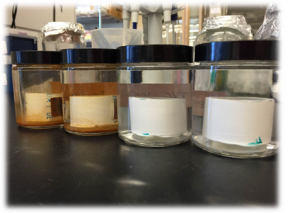Sloan has just renewed our funding to build on our foundational research at Virginia Tech that has established general factors broadly shaping the composition of the premise plumbing microbiome! In this next phase we will focus on shifts in water chemistry and temperature, using brain-eating amoebae as a key exemplar (need to protect those brains!). Our already stressed water infrastructure is poised to experience dramatic shifts in both temperature and water chemistry as a consequence of climate change, aging infrastructure, energy/water conserving plumbing retrofits, sustainable and green building designs, and utilization of new water sources, such as recycled water. We are eager to begin our new work focusing on understanding how warmer ambient water temperatures will influence the microbiome of pipes delivering recycled or potable water. Our interest in brain-eating amoeba (Naegleria fowleri) rose from recent deaths from individuals getting tap water up their noses, which provides access of the deadly amoeba to the brain. Water systems in warm climates are most susceptible, particularly in Louisiana, where the most recent deaths occurred. The proliferation of N. fowleri in the water mains and building plumbing epitomizes the kinds of concerns that will arise as temperatures rise due to climate change (N. fowleri is a warm-water bug) and as we shift water chemistry through use of recycled water and water conservation. We will carry out experiments in the lab with actual water from Louisiana known to be susceptible to N. fowleri and also using a controlled, recycled water distribution system. We will seek a fundamental understanding of how these shifts influence the microbiome, through DNA sequence profiling of bacterial (16S) and eukaryotic (18S) targets, as well as metagenomics. Combined with our prior work, we hope to advance the frontier of understanding the factors controlling the building plumbing microbiome while proactively seeking to inform building water system design and operation to prevent the spread of disease.


That’s an awesome question/idea to explore. Def will be checking in to hear about the progress.